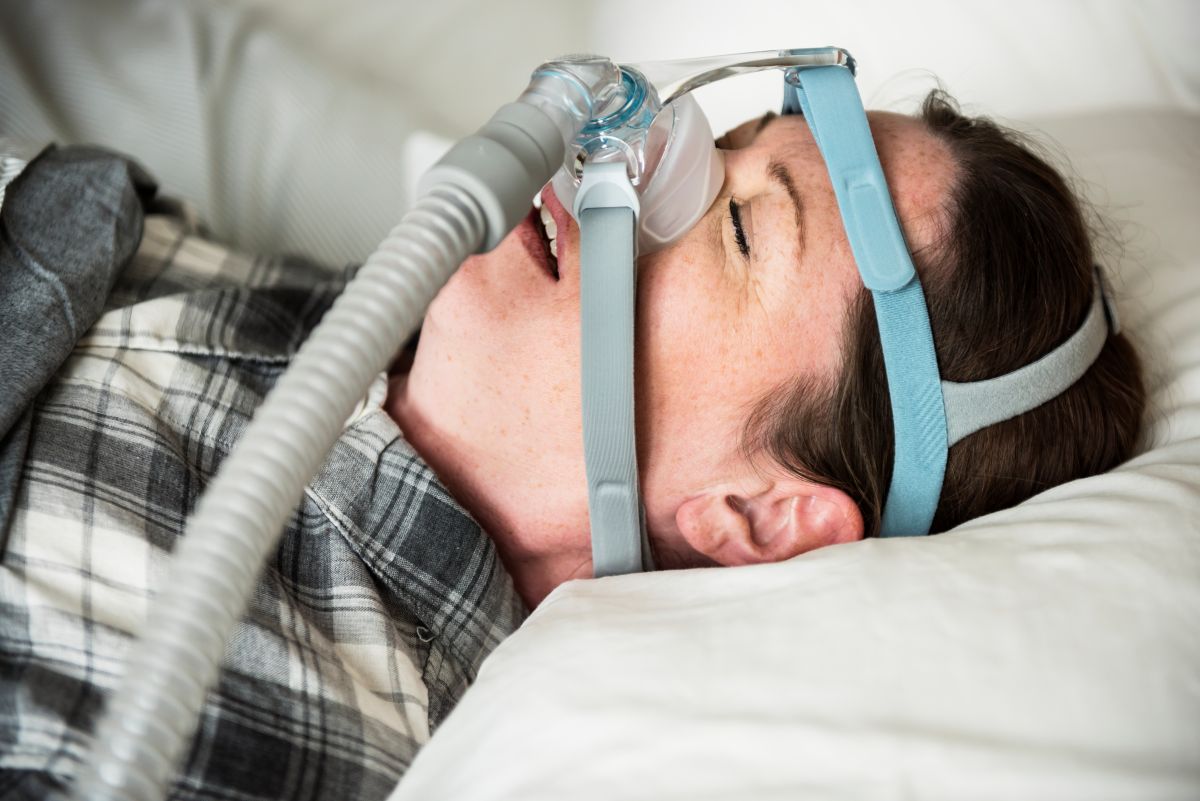It might not seem like a big deal — snoring, feeling tired during the day, maybe waking up once or twice at night. But if these symptoms are caused by sleep apnea, ignoring them could put your health at serious risk.
Sleep apnea isn’t just a sleep issue. It’s a medical condition that affects your entire body — your brain, heart, metabolism, immune system, and more.
And when left untreated, the consequences add up fast.
Sleep Apnea: More Than Just Snoring
Sleep apnea occurs when your breathing repeatedly stops and starts during sleep. Each time it happens, your oxygen levels drop, your heart rate changes, and your brain has to briefly wake you up to restart breathing — even if you don’t remember it.
These frequent interruptions prevent you from reaching the deep, restorative sleep your body needs to function properly.
Short-Term Consequences of Ignoring Sleep Apnea
Even in the short term, untreated sleep apnea can significantly lower your quality of life. You might experience:
- Daytime fatigue
You might sleep 7 or 8 hours, but still feel completely exhausted. - Brain fog and memory issues
Interrupted sleep affects your ability to concentrate, stay focused, and remember details. - Mood swings and irritability
Sleep deprivation makes it harder to regulate emotions and can increase anxiety or depression. - Decreased work performance
Poor sleep reduces productivity, increases errors, and can make daily tasks feel overwhelming. - Relationship strain
Loud snoring and restless sleep can lead to sleeping in separate rooms — and emotional distance between partners.
Long-Term Health Risks of Untreated Sleep Apnea
Ignoring sleep apnea doesn’t just make you tired — it can lead to serious health complications over time, including:
1. High Blood Pressure
Sleep apnea causes your body to release stress hormones that raise blood pressure — and it stays elevated, even during the day.
2. Heart Disease and Stroke
People with untreated sleep apnea are significantly more likely to suffer from:
- Heart attacks
- Irregular heart rhythms (arrhythmias)
- Stroke
- Sudden cardiac death during sleep
3. Type 2 Diabetes
Sleep apnea affects your glucose metabolism and insulin sensitivity, increasing your risk of developing diabetes — even if you’re not overweight.
4. Weight Gain
Poor sleep affects hunger hormones, increasing cravings and slowing metabolism. This can lead to weight gain, which then worsens the severity of sleep apnea.
5. Memory Loss and Cognitive Decline
Chronic low oxygen levels and fragmented sleep are linked to a higher risk of Alzheimer’s disease and dementia.
6. Liver Problems
People with sleep apnea often show signs of nonalcoholic fatty liver disease, likely due to inflammation and oxygen fluctuations.
7. Decreased Immune Function
Lack of quality sleep weakens your immune system, making you more prone to infections and slower to recover.
8. Increased Risk of Car Accidents
Untreated sleep apnea increases your risk of drowsy driving accidents — especially if you frequently nod off at red lights or feel sleepy behind the wheel.
Emotional and Psychological Impact
Sleep apnea doesn’t just affect your body — it also takes a toll on your mental health, including:
- Depression and anxiety
- Low motivation
- Poor self-image
- Increased stress and burnout
The emotional burden of feeling “off” all the time can build over months or years without ever realizing that sleep apnea is the cause.
Why People Delay Treatment
Many people avoid sleep apnea treatment because they think:
- Snoring is normal
- They’re just “bad sleepers”
- They don’t want to wear a CPAP machine
- They’re too busy for a sleep study
- It will go away on its own
But the truth is, sleep apnea rarely improves without treatment — and ignoring it increases the chance of serious health issues.
The Good News? It’s Easy to Get Started
You don’t have to spend the night in a lab or commit to a machine right away.
Today’s testing and treatment options include:
- Home sleep tests you take in your own bed
- Oral appliance therapy — a simple, comfortable alternative to CPAP
- Lifestyle adjustments to reduce symptoms
- Insurance-covered options and personalized care plans
Take Action Before It’s Too Late
Sleep apnea is manageable — and in many cases, highly treatable. But ignoring the signs can lead to irreversible damage.
If you’ve been putting it off, now is the time to take the next step.
Related: Home Sleep Apnea Test Guide
Related: Oral Appliance Therapy for Sleep Apnea
Frequently Asked Questions
Can sleep apnea go away without treatment?
In most cases, no. While weight loss and other lifestyle changes may help, proper diagnosis and management are essential for long-term health.
What is the risk of sudden death from sleep apnea?
Severe sleep apnea significantly increases the risk of cardiac arrest during sleep, particularly in people with underlying heart conditions.
Why do people ignore sleep apnea?
Common reasons include fear of CPAP, lack of awareness, or assuming snoring is harmless. But untreated sleep apnea is anything but harmless.
How quickly does sleep apnea cause health problems?
You may feel the effects within weeks (fatigue, mood changes) and face more serious health risks over months or years of untreated symptoms.
Is it ever too late to treat sleep apnea?
It’s never too late. Even if you’ve had symptoms for years, treatment can improve your health, energy, and quality of life at any stage.






